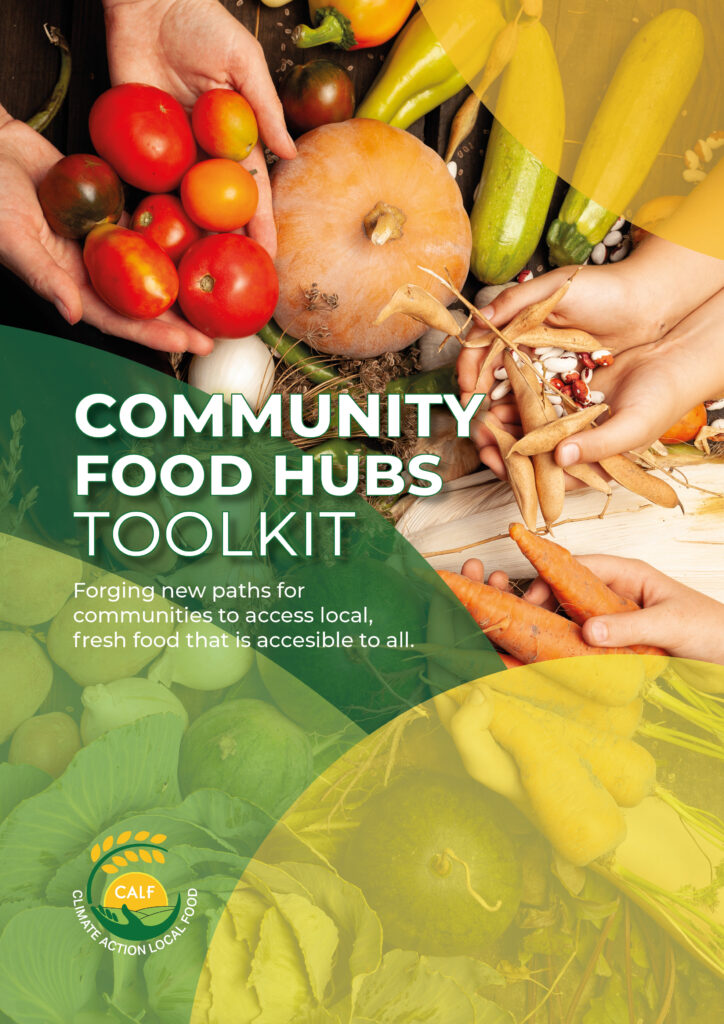Community Food Hubs are a key opportunity for us to rebuild our local food system by working together in our communities – bringing producers and eaters together in a fair and collaborative way that works to make quality local food available to all at a fair price. Community Food Hubs could be described as centres of expertise and advocacy for the local food system, encompassing a variety of initiatives such as community growing, education and training, community kitchens, emergency food support held together by an online farmers market. They are typically social enterprises, driven by a mission to support sustainable, accessible local food systems, and are inclusive centres of community activity.
Community Food Hubs are a great way to engage in climate action as a collective – read more here.
TOOLKIT

If you want to learn more about Community Food Hubs and how to get one started in your own community, our Toolkit is a great place to start.
Section 1 – Intro to the Toolkit
Who is this for? Benefits in using the Toolkit; How to use the Toolkit; The CALF project
Section 2 – Introduction to Community Food Hubs
What are Food Hubs? Some examples; Why do we need them? Food Hubs, Climate Action and the SDGs
Section 3 – Getting Started with your Food Hub
Market Research; Group formation; Regulatory Requirements & Finances
Section 4 – Growing the Community Food Hub
Marketing and promotion; Building a community around your Food Hub and expanding the scope
CASE STUDIES
Food Hubs come in many forms and you can take a look at some of the existing Community Food Hubs in a little more detail below. We have interviewed and visited these Hubs and the insights from their teams and founders are gathered here in the hope that they can inspire and inform similar great initiatives in communities nationwide.
Sonáirte, The National Ecology Centre
The Local Market Hub Newbridge, Co. Kildare
North Tipperary Online Farmers Market, Cloughjordan Eco Village, Co. Tipperary
The Local Green Box Cavan watch more here
Síolta Chroí, Monaghan
